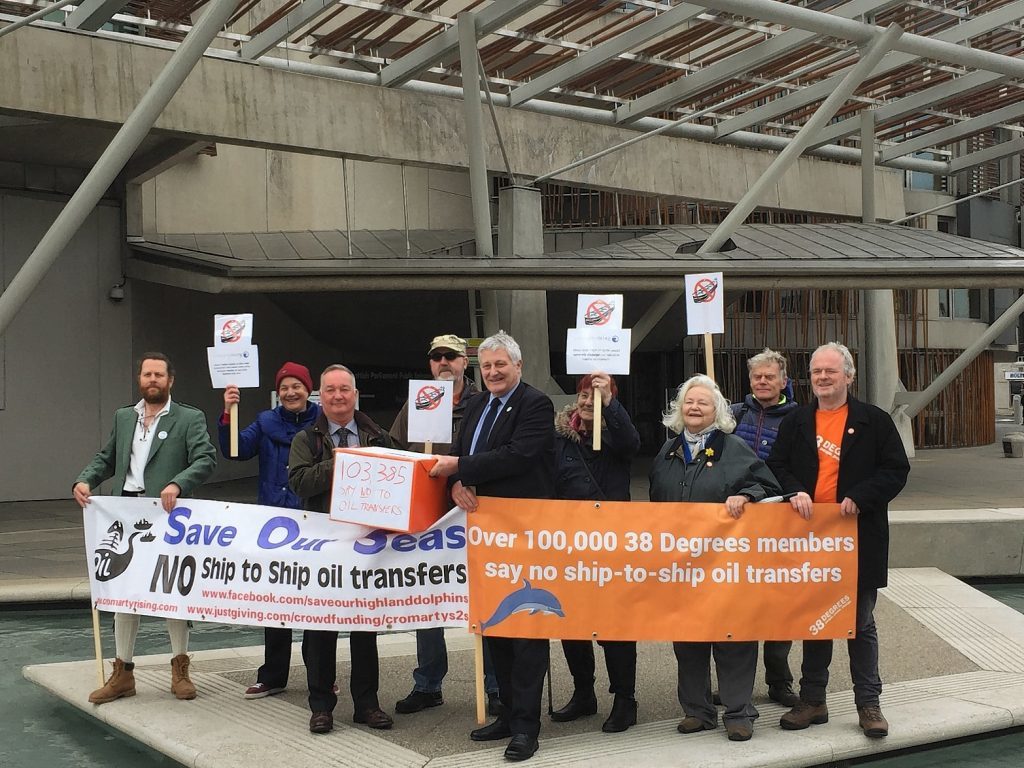
Campaigners opposed to ship-to-ship oil transfers in the dolphin-friendly waters of the Cromarty Firth warned MSPs yesterday of “a disaster waiting to happen.”
The Cromarty Rising protest group gave evidence to Holyrood’s petitions committee hoping the Scottish Government could somehow ensure environmental legislation in Scotland to bar such crude oil movements at sensitive locations.
Oil transfers are not a devolved matter, however. A Port of Cromarty Firth licence application that prompted the outcry will be decided by the UK Government’s Maritime and Coastguard Agency(MCA).
As the port drafts its application, the activists handed MSPs a 100,000-plus petition opposing it.
Group spokesman Greg Fullarton told them the transfers would happen within a few miles of a rocky shoreline and that “if anything goes wrong there, with no (national) emergency tug on hand, it’s a disaster waiting to happen.”
He warned that the scale of oil transfers currently happening port-side would increase eight-fold and that no jobs would be created and existing ones would be threatened.
Mr Fullarton claimed that no jobs would be created and existing ones – predominantly in tourism – would be “threatened” by an increased pollution risk.
All but one of 27 local community councils oppose the licence proposal.
He asked if the Scottish Parliament could act to use its powers “to reflect the will of the people to protect our environment.”
The port authority, which did not give evidence yesterday, later dismissed the claim that it had failed to communicate, insisting it was “open and transparent.”
A spokesman said: “We answered questions at our annual public meeting and have continued to update community councils and provide updated documents.”
Skye, Lochaber and Badenoch SNP MSP Kate Forbes, who joined the debate, said it was “ridiculous” that the Southampton-based MCA would rule on “such crucial matters in Scottish waters.”
Green MSP John Finnie, also involved in the debate, warned of “catastrophic consequences” for marine life if the licence was approved.
Petitions committee convener Johann Lamont pledged to explore the issues and register them with the Scottish Government which is due to debate the issue next Wednesday.
Recommended for you
